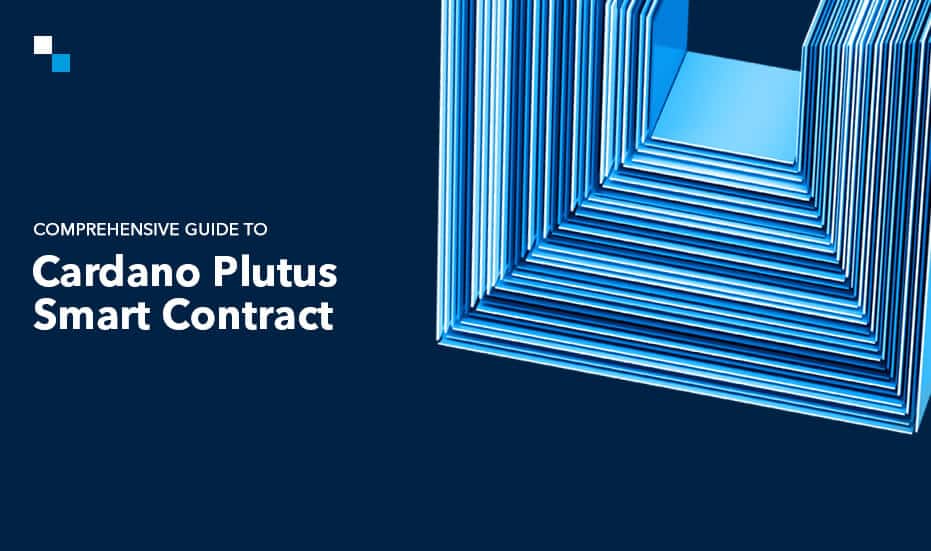Cardano, the third-generation blockchain, has been making waves within the regime of cryptocurrency due to its pioneering approach in the development of smart contracts. At the very core of that innovation is Plutus, which is Cardano’s native smart contract programming language.
The article takes a dive into the world of Cardano Plutus, studying the features, benefits, introduction of Cardano Plutus V3, and steps of developing Plutus smart contract.
Understanding Cardano and Plutus
Cardano was founded by Charles Hoskinson, the founder of Ethereum. Cardano was set up to solve problems surrounding earlier blockchain platforms: scalability, interoperability, and sustainability. What sets the platform apart in an exponentially evolving blockchain space is its commitment to academic rigor and peer-reviewed research.
Plutus, named in honour of the Greek god of wealth, is a purpose-built smart contract development and execution platform for Cardano. Inherited traits from Haskell build Plutus to be much more secure, efficient, and user-friendly than its predecessors by harnessing the power of functional programming.
Key Features of Plutus Smart Contracts
Functional Programming Paradigm Plutus is based on Haskell, a purely functional programming language. Several benefits are associated with Cardano Plutus smart contract development includes:
- Improved security
Functional programming avoids side effects that are effects that are neither intended to happen nor expected.
- Easier formal verification
The mathematical nature of functional programming allows it to easily prove the correctness of smart contracts.
- More concise and expressive code
Stanton and others can write complex logic with less code, reducing possible errors.
- On-Chain and Off-Chain Code
Plutus presents a very novel concept of separating Plutus smart contract logic into on-chain and off-chain components: on-chain code, which is run on the Cardano blockchain directly, hence it has high security and immutability, and off-chain code, which runs on the client’s device and handles user interactions and prepares transactions. This separation does enable more efficient usage of blockchain resources, bringing improved scalability in this direction.
- Native Tokens
Cardano’s native token functionality empowers users to build custom tokens directly on the blockchain without smart contracts. This functionality improves efficiency and minimizes complexity in token-based applications.
- Formal Verification
Plutus is designed under formal verification. Mathematically proving the correctness of smart contracts enhances significantly the security and reliability of the code.
- Deterministic Execution
Plutus provides the assurance that the same smart contract will produce the same output for any given input, regardless of the environment in which it is executed. These further acts to aid in the consistency throughout a network.
Advantages of Building Cardano Plutus Smart Contract
- Enhanced Security:
The functional programming paradigm and formal verification capabilities of Plutus significantly reduce the risk of vulnerabilities and exploits commonly found in smart contracts on other platforms.
- Scalability:
The separation of on-chain and off-chain code, combined with Cardano’s underlying Ouroboros consensus mechanism, allows for better scalability compared to traditional smart contract platforms.
- Cost-Efficiency:
The fee structure of Cardano and the efficiency of Plutus smart contract can lead to reduced cost of transaction, hence opening it up to a wider range of applications in general.
- Interoperability
This is something that Cardano’s design philosophy has underscored from the very start; therefore, in the future, Cardano Plutus smart contract might be able to seamlessly work with other blockchain networks.
- Developer-Friendly
While Haskell has a learning curve, the long-term benefits of using a functional programming language can lead to more robust and maintainable code. Additionally, Cardano provides comprehensive documentation and tools to support developers.
The Evolution of Cardano Plutus: Introducing Plutus V3
As Cardano is expected to evolve rapidly, so will be the smart contracts built on it. The introduction of Cardano Plutus V3 marks a significant milestone in the platform’s development. This latest iteration brings several improvements and new features:
- Enhanced Performance
Plutus V3 reduces computational costs required to execute contracts and improves network efficiency.
- Expanded Functionality
New, more powerful built-in functions and data types allow writing smarter smart contracts with smaller programs.
- Improved Developer Experience
New tooling and improved documentation make it easier to write, test and deploy a Cardano Plutus smart contract.
- Greater Interoperability
Plutus V3 introduces new mechanisms for smart contracts to communicate with other blockchain protocols, but it opens space for cross-chain applications.
Steps for Developing a Cardano Plutus Smart Contract
Developing a Plutus Smart Contract involves several key stages.
Here you go:
1. Understanding Plutus and Haskell
- Learn the fundamentals: Become accustomed to functional programming concepts and Haskell syntax, including Cardano Plutus V3.
- Learn Plutus Core: Gain detailed knowledge of the core language that underpins Cardano Plutus smart contract development.
2. Define Your Smart Contract
- Specify the goal: Clearly outline the purpose and functionality of your smart contract.
- Identify inputs and outputs: Determine the data that will be processed, and the results generated.
- Define the logic: Structure the rules and conditions that govern the contract’s behaviors.
3. Set Up the Development Environment
- Install necessary tools: Acquire the Cardano CLI, Plutus Core compiler, and other required software.
- Configure the environment: Set up your development environment with appropriate libraries and dependencies.
4. Write Plutus Code
- Create a Plutus script: Use Haskell to write the smart contract’s logic.
- Define data types: Create data structures to represent the contract’s inputs and outputs.
- Implement contract functions: Write functions to handle different contract states and actions.
5. Compile to Plutus Core
- Convert Haskell code: Compile the Plutus script into Plutus Core, the executable format for the Cardano blockchain.
6. Testing and Debugging
- Write test cases: Create test scenarios to verify the contract’s behavior under different conditions.
- Debug issues: Identify and fix errors in the Plutus code through testing and debugging.
7. Deploy to Cardano Network
- Create a transaction: Build a transaction that includes the compiled Plutus script and necessary inputs.
- Submit to the network: Send the transaction to the network to deploy the Cardano Plutus smart contract.
8. Monitor and Maintain
- Track contract performance: Observe the contract’s behavior on the blockchain.
- Update and upgrade: Modify the contract as needed to address changes or add new features.
Additional Considerations:
- Security: Prioritize security by following best practices and conducting thorough audits.
- Optimization: Optimize the Plutus code for efficiency and performance.
- Documentation: Create clear documentation for the smart contract to aid understanding and maintenance.

Use Cases and Applications
Developing Cardano Plutus smart contract can open up a world of possibilities across various industries:
- Decentralized Finance (DeFi)
Plutus makes it easier to create complex financial products, lending platforms, and decentralized exchanges with enhanced security and efficiency.
- Non-Fungible Tokens (NFTs)
The combination of native token functionality and Plutus smart contract builds a powerful platform for creating and managing unique digital assets.
- Supply Chain Management
Immutable and verifiable smart contracts ensure better transparency and traceability in supply chain operations.
- Governance Systems
Plutus can facilitate the implementation of decentralized autonomous organizations (DAOs) and voting systems with increased security and fairness.
- Identity Management
Secure and privacy-preserving identity solutions can be built using Cardano Plutus smart contract, potentially revolutionizing digital identity verification.
Conclusion
Cardano and Plutus are in the metamorphosis stage, but it laid a very good base for this ingenuity of approach toward the development of smart contracts. Cardano is intrinsically designed for scalability; Plutus is set to underpin the next generation of decentralized applications. Building Plutus smart contract is something worth trying because of the security of functional programming language, efficiency via on- and off-chain code separation.
Antier leads in Cardano Plutus smart contract development and provides professional help in leveraging the feature-rich power of this cutting-edge platform. Leverage a team of skilled developers who are best positioned to stand behind Plutus’ features to create secure, efficient, and scalable smart contracts. We deliver solutions tailoring to your needs. Allow us to empower your blockchain vision with the most sophisticated technology using Plutus. Get in touch with us today!







